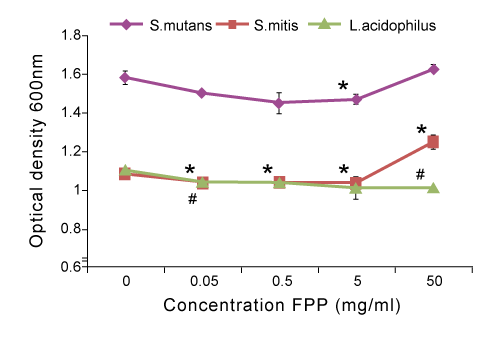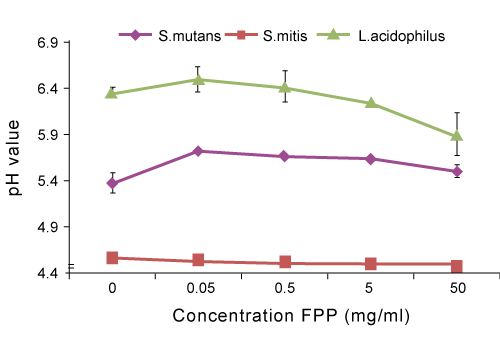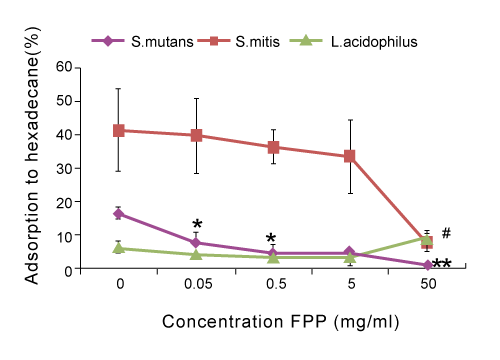Research
The inhibitory effect of a fermented papaya preparation on growth, hydrophobicity, and acid production of Streptococcus mutans, Streptococcus mitis, and Lactobacillus acidophilus: its implications in oral health improvement of diabetics
FILE2013
The inhibitory effect of a fermented papaya preparation on growth, hydrophobicity, and acid production of Streptococcus mutans, Streptococcus mitis, and Lactobacillus acidophilus: its implications in oral health improvement of diabetics
Food Science & Nutrition. 1(6):416-421, 2013
Fermented papaya preparation (FPP) is a "natural health product." The high incidence of dental caries, gingivitis, periodontitis, and oral microbial infection cases among patients with diabetes mellitus continues to prevail.In an attempt to explain this trend, multiple pathophysiological mechanisms have been suggested, including deficient nutritional intake, alterations in host response to oral microflora, compromised neutrophil function, and decreased phagocytosis and leukotaxis.Bacteria-triggered secretion of serum pro-inflammatory cytokines in the mouth may induce hyperglycemia and ultimately cause insulin resistance and contribute to the indirect destruction of pancreatic beta cells.
The potential role of FPP against common oral microbiota (Streptococcus mutans, Streptococcus mitis, and Lactobacillus acidophilus) isolated from the human oral cavity was investigated using in vitro simulation models of dental plaque and caries. FPP showed an inhibitory effect against the growth (at 0.05 mg/mL: S. mutans: -6.9%; S. mitis: -4.47%, P < 0.05)(Fig.1), acid production (at 0.05 mg/mL: S. mutans: +6.38%; L. acidophilus: +2.25%)(Fig.2), and hydrophobicity (at 50 mg/mL: S. mutans: 1.01%, P < 0.01; S. mitis: 7.66%, P < 0.05) (Fig.3)of tested microbiota.
The results of this study suggest that low doses of FPP may be a suitable complement to good oral hygiene practice for the effective prevention of dental caries, plaque, and gingivitis. The functional application of FPP as a constituent of a balanced diet and active lifestyle can make a positive contribution to the oral health status and well-being of patients with diabetes.
Fig1: Effect of FPP on the growth of
Streptococcus mutans, Streptococcus mitis, and Lactobacillus acidophilus
*/#p < 0.05 vs control
Fig2: Effect of FPP on the acid production of
Streptococcus mutans, Streptococcus mitis, and Lactobacillus acidophilus
Fig3: The effect of FPP on cell surface hydrophobicities of
Streptococcus mutans, Streptococcus mitis, and Lactobacillus acidophilus
*/#p < 0.05, **p < 0.01 vs control
List of the related papers
Year
Name of Papers
2013
